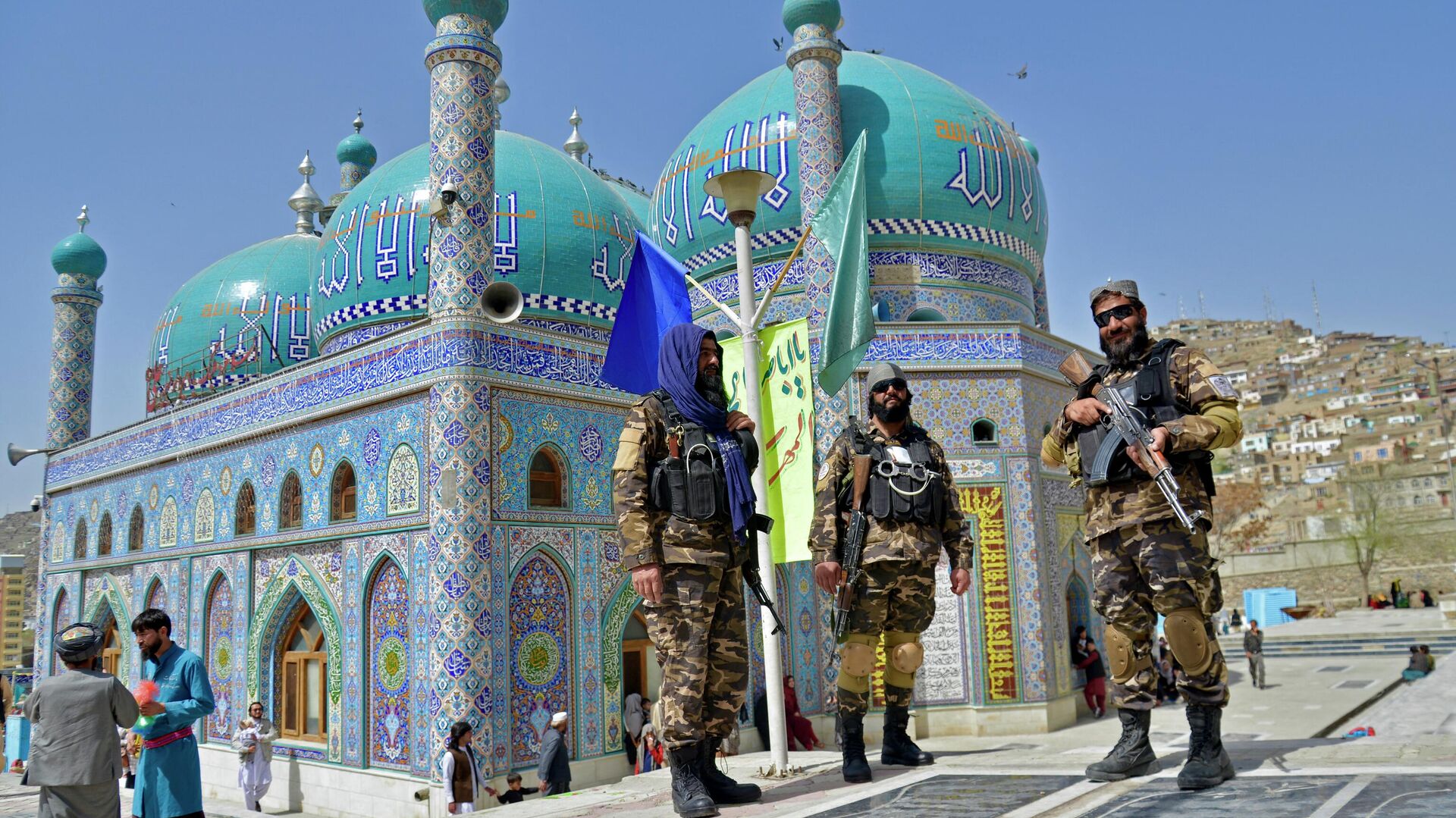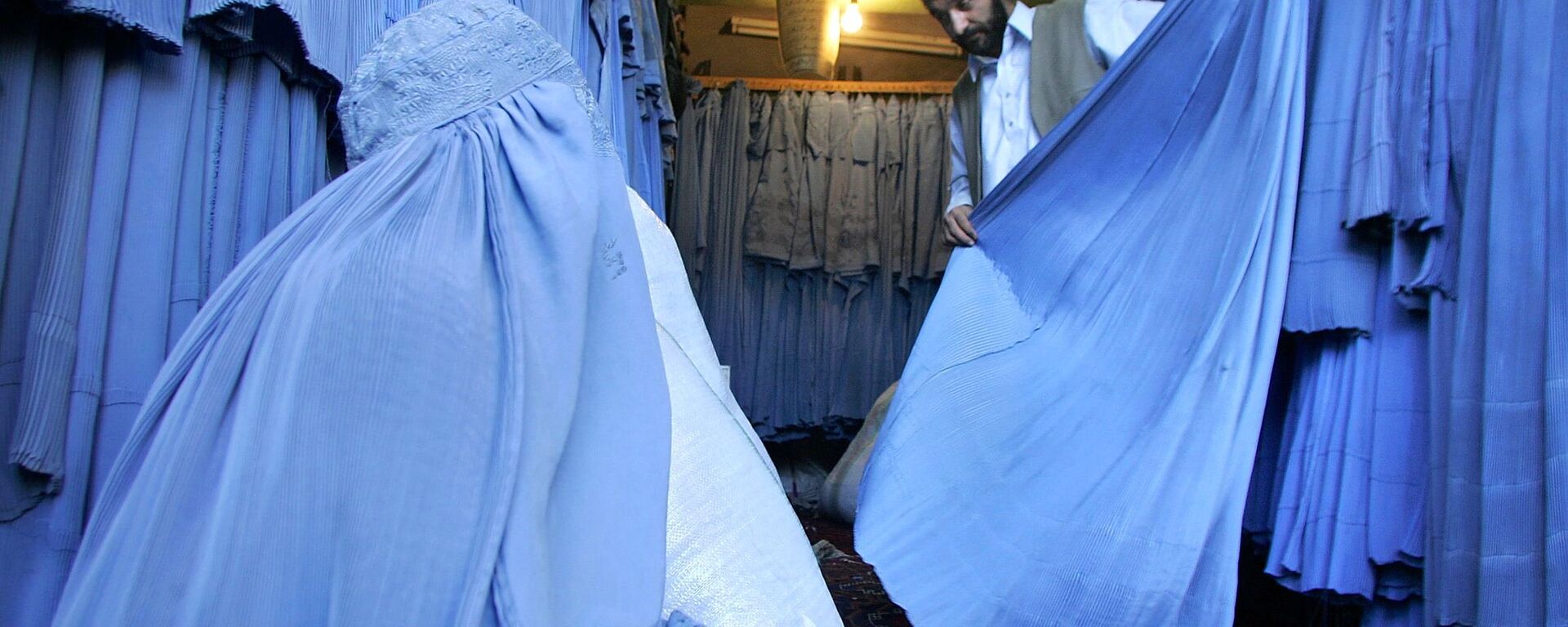https://sputnikglobe.com/20220530/unfounded-taliban-rejects-unsc-report-alleging-presence-of-foreign-terrorists-in-afghanistan-1095872560.html
'Unfounded': Taliban Rejects UNSC Report Alleging Presence of Foreign Terrorists in Afghanistan
'Unfounded': Taliban Rejects UNSC Report Alleging Presence of Foreign Terrorists in Afghanistan
Sputnik International
The report by the UN Security Council’s Analytical Support and Sanctions Monitoring Team, published on 26 May, claims that al-Qaeda* has used the Taliban’s**... 30.05.2022, Sputnik International
2022-05-30T11:51+0000
2022-05-30T11:51+0000
2023-02-10T09:05+0000
taliban
afghanistan
us
lashkar-e-taiba
jaish-e-mohammed
al-qaeda
un security council (unsc)
daesh
https://cdn1.img.sputnikglobe.com/img/07e6/05/1e/1095875801_0:148:3071:1875_1920x0_80_0_0_05d5fa8e71dc04c4b519422c17418c59.jpg
The Taliban's Foreign Ministry on Monday rejected a new United Nations Security Council (UNSC) report, which claims that “foreign terrorist fighters” have been “moving around freely” in Afghanistan since last August, when the Islamist group stormed to power in the Central Asian nation.The Taliban official also called upon the UN Security Council to abstain from “seeking unsubstantiated information from anonymous sources”, a reference to claims presented in the new UN report which doesn’t cite any foreign official on record.Balkhi further called upon the international community to allow for the representation of the Taliban in the United Nations so that the group could “directly present factual information to the UNSC and other countries”.Balkhi went on to “reaffirm” that the Taliban won’t allow Afghan territory to be used to carry out attacks against other countries.Under the Doha Peace Deal concluded between the Taliban and the US on 29 February 2020, the Taliban has committed that it “will prevent the use of the soil of Afghanistan by any group or individual against the security of the United States and its allies”.However, the international community has raised repeated concerns about the Taliban making good on that particular commitment, which has been reflected in the findings of the recent UNSC report.Not a single country has afforded diplomatic recognition to the Taliban regime in Afghanistan; as it hasn't fulfilled commitments made under the Doha Deal, including the clause not allowing Afghan soil to be used to stage attacks on other nations.Additionally, the US Treasury last year also chose to withhold billions of dollars of Afghanistan’s federal funds in America-based financial institutions until the Taliban formed an inclusive government with representation from non-Pashtun minority groups and women.What Does the UNSC report say?The UNSC report claims that the “relationship between the Taliban and al-Qaeda remains close”.While the report claims that al-Qaeda isn’t capable of mounting a terrorist attack on foreign territory till at least 2023, it also notes the concerns of “member states” about the “presence of many other terrorist groups and fighters on Afghan soil”.Most of the new fighters joining Daesh are from Tajik and Uzbek minorities, according to the report.It also notes the presence of the China-centric Eastern Turkistan Islamic Movement (ETIM)* in Afghanistan. The report claims that at least two India-centric terrorist groups, Lashkar-e-Taiba (LeT)* and Jaish-e-Mohammad (JeM)*, also have several hundred fighters each in Afghanistan.The report claims that JeM maintains eight "training camps" in Nangarhar province, of which three are under Taliban's "direct control". The LeT, on the other hand, reportedly has three camps in Kunar and Nangarhar provinces.* Terrorist organisations banned in Russia and many other countries** Under UN sanctions for terrorist activities
https://sputnikglobe.com/20220508/un-secretary-general-concerned-by-taliban-imposing-new-hijab-rules-for-afghan-women-1095345839.html
afghanistan
Sputnik International
feedback@sputniknews.com
+74956456601
MIA „Rosiya Segodnya“
2022
News
en_EN
Sputnik International
feedback@sputniknews.com
+74956456601
MIA „Rosiya Segodnya“
Sputnik International
feedback@sputniknews.com
+74956456601
MIA „Rosiya Segodnya“
taliban, afghanistan, us, lashkar-e-taiba, jaish-e-mohammed, al-qaeda, un security council (unsc), daesh
taliban, afghanistan, us, lashkar-e-taiba, jaish-e-mohammed, al-qaeda, un security council (unsc), daesh
'Unfounded': Taliban Rejects UNSC Report Alleging Presence of Foreign Terrorists in Afghanistan
11:51 GMT 30.05.2022 (Updated: 09:05 GMT 10.02.2023) The report by the UN Security Council’s Analytical Support and Sanctions Monitoring Team, published on 26 May, claims that al-Qaeda* has used the Taliban’s** takeover to “attract new recruits and funding”. Furthermore, the report claims the “presence” of foreign terrorist groups which previously targeted India, Pakistan and China.
The Taliban's Foreign Ministry on Monday rejected a new United Nations Security Council (UNSC) report, which claims that “foreign terrorist fighters” have been “moving around freely” in Afghanistan since last August, when the
Islamist group stormed to power in the Central Asian nation.
The “Ministry of Foreign Affairs of the Islamic Emirate of Afghanistan views the UNSC Monitoring Team report asserting the existence and operation of foreign groups in Afghanistan as unfounded and rejects it in the strongest terms,” the Taliban’s Foreign Ministry spokesperson Abdul Qahar Balkhi said in a statement.
The Taliban official also called upon the UN Security Council to abstain from “seeking unsubstantiated information from anonymous sources”, a reference to claims presented in the new UN report which doesn’t cite any foreign official on record.
Balkhi further called upon the international community to allow for the representation of the Taliban in the United Nations so that the group could “directly present factual information to the UNSC and other countries”.
Balkhi went on to “reaffirm” that the Taliban won’t allow Afghan territory to be used to carry out attacks against other countries.
Under the
Doha Peace Deal concluded between the Taliban and the US on 29 February 2020, the Taliban has committed that it “will prevent the use of the soil of Afghanistan by any group or individual against the security of the United States and its allies”.
However, the international community has raised repeated concerns about the Taliban making good on that particular commitment, which has been reflected in the findings of the recent UNSC report.
Not a single country has afforded diplomatic recognition to the Taliban regime in Afghanistan; as it hasn't fulfilled commitments made under the Doha Deal, including the clause not allowing Afghan soil to be used to stage attacks on other nations.
Additionally, the US Treasury last year also chose to withhold billions of dollars of Afghanistan’s federal funds in America-based financial institutions until the Taliban formed an inclusive government with representation from non-Pashtun minority groups and women.
What Does the UNSC report say?
The UNSC report claims that the “relationship between the Taliban and al-Qaeda remains close”.
“Member state assessment thus far suggests that al-Qaeda has a safe haven under the Taliban and increased freedom of action,” the report states.
While the report claims that al-Qaeda isn’t capable of mounting a terrorist attack on foreign territory till at least 2023, it also notes the concerns of “member states” about the “presence of many other terrorist groups and fighters on Afghan soil”.
The report also claims that there is an “upward trend” in recruitment for Islamic State in Levant and Khorasan (a Daesh* affiliate) in Afghanistan under the Taliban, in spite of the rivalry between the Taliban and Daesh.
Most of the new fighters joining Daesh are from Tajik and Uzbek minorities, according to the report.
Further, the report states that Tehreek-e-Taliban Pakistan (TTP)* constitutes the “largest component” of foreign terrorist fighters in Afghanistan. The TTP seeks to overthrow the Pakistani government and establish a Sharia state in the country.
It also notes the presence of the China-centric Eastern Turkistan Islamic Movement (ETIM)* in Afghanistan. The report claims that at least two India-centric terrorist groups, Lashkar-e-Taiba (LeT)* and Jaish-e-Mohammad (JeM)*, also have several hundred fighters each in Afghanistan.
The report claims that JeM maintains eight "training camps" in Nangarhar province, of which three are under Taliban's "direct control". The LeT, on the other hand, reportedly has three camps in Kunar and Nangarhar provinces.
* Terrorist organisations banned in Russia and many other countries
** Under UN sanctions for terrorist activities




